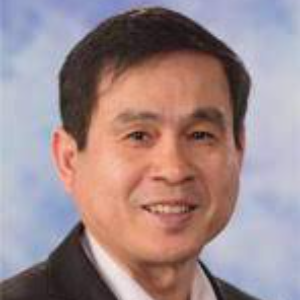Title : No more laundry?
Abstract:
Liquid-repellent surfaces repel liquids instead of allowing droplets to adhere. These surfaces are important in many fields including self-cleaning clothes and kitchenware, enhanced heat transfer, and anti-fouling, anti-corrosive and drag reduction coatings. The dream of research and development on liquid-repellents is a structure that has robust liquid repellency, strong mechanical stability, and is inexpensive to produce on a commercial scale. However, the functional outcomes of existing liquid-repellent surfaces have not been satisfactory, because of inadequacies of conventional structural design and fabrication approaches in engineering microstructures and properties of such surfaces. We developed a low-cost scalable approach for the fabrication of well-defined porous surfaces with robust liquid repellency and strong mechanical stability. The design of the liquid-repellent surfaces is inspired by structures on springtail cuticles, which can effectively resolve the longstanding conflict between the liquid repellency and the mechanical stability. Springtails are soil-dwelling arthropods whose habitats often experience rain and flooding. As a consequence, springtails have evolved cuticles with strong mechanical durability and robust liquid repellency to resist friction from soil particles and to survive in watery environments. We design the porous surfaces to be composed of interconnected honeycomb-like microcavities with a re-entrant profile: the interconnectivity ensures mechanical stability and the re-entrant structure yields robust liquid repellency. The cuticle-like porous surfaces are fabricated by self-assembly using microfluidic droplets, which takes full advantage of the capabilities of microfluidics in terms of scalability and precise-handling of small fluid volumes. The generation of these cuticle-like porous surfaces using microfluidics has led to precise, controllable, scalable, and inexpensive fabrication. With this technique, no more laundry may become true.
Audience take away:
The design of the liquid-repellent surfaces was inspired by structures on springtail cuticles, which can effectively resolve the longstanding conflict between the liquid repellency and the mechanical stability. The cuticle-like porous surfaces were fabricated by self-assembly using microfluidic droplets, which takes full advantage of the capabilities of microfluidics in terms of scalability and precise-handling of small fluid volumes. The breakthrough enabled inexpensive, commercial-scale production of fluoride-free, durable omniphobic surfaces and make the dream of no more laundry and kitchen-cleaning come true, leading directly to the award of the 2018 TechConnect Global Innovation Award and the patent PCT/CN2016/104658.



